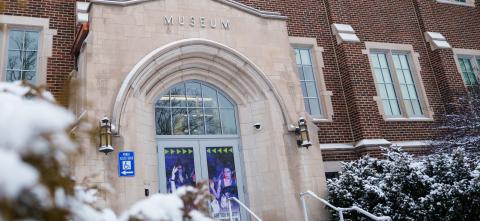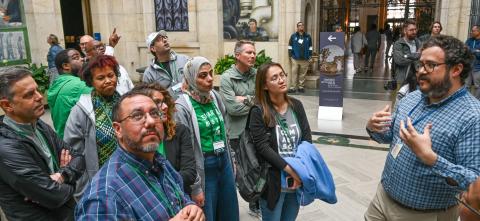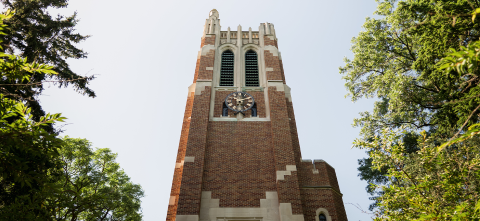
Detroit DJ and Producer Carl Craig Named Artist-in-Residence
Michigan State University has selected internationally renowned Detroit DJ, producer and techno innovator Carl Craig as a MSUFCU Arts Power Up artist-in-residence, a program that brings visionary artists to campus to explore creativity, research and technology.

Study Finds Most College Students Rebounded After Pandemic, but to Varying Degrees
New research from Michigan State University finds that in the four years after the COVID-19 pandemic upended campus life, most college students successfully bounced back. Students reported rising life satisfaction and declining loneliness. Many also recall online classes from the early days of the pandemic more fondly.

Meet the Spartan Researchers Shaping MSU’s Ethics Institute
Michigan State University’s Ethics Institute brings Spartan scholars together to tackle today’s ethical challenges. Established in 2025, the institute supports interdisciplinary research, dialogue and student engagement. Meet the researchers turning ethical inquiry into real-world impact.

Flint to Help Shape National Health Equity Efforts
Michigan State University College of Human Medicine and Flint residents have been awarded one of three competitive coordinating center grants from the Robert Wood Johnson Foundation (RWJF) through its Health Equity Research for Action (HERA) program.

Scientists Explore New Treatment of Drug for Rare Disorder
A decades-old drug, long used to treat conditions including a chronic parasitic disease, may soon offer new hope for even more patients with a different life-threatening and ultra-rare disorder, Bachmann-Bupp syndrome (BABS). The work is made possible through a new partnership between Corewell Health, Michigan State University and Every Cure.

MSU Earns 3rd Carnegie Classification, Recognizing Leadership in Community Engagement
MSU’s commitment to exemplary community engagement has been nationally recognized through its selection as a recipient of the 2026 Carnegie Elective Classification for Community Engagement by the American Council on Education and the Carnegie Foundation for the Advancement of Teaching.

Evidence Suggests the Milky Way’s Black Hole Had a More Active Past
Our galaxy’s supermassive black hole is famous for being one of the dimmest in the universe. Evidence from a new space telescope shows that this might not always have been the case. These surprising findings unveil new details of how supermassive black holes evolve. They also teach astronomers lessons about the history of our cosmic home.

MSU Contributes to $45B in Economic Impact Generated by Michigan’s Public Universities
Michigan State University and its public university peers are a powerful economic engine for the state, generating nearly $45 billion in net new economic activity each year, supporting more than 129,000 jobs and contributing over $7 billion in state tax revenue.
Announcements
